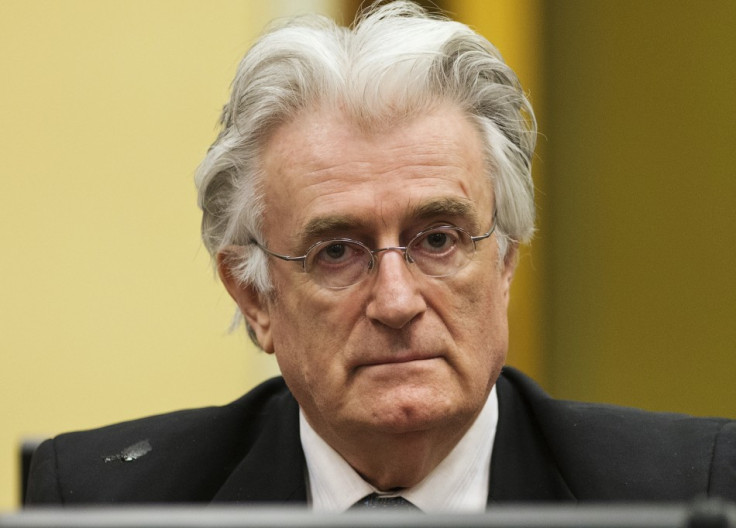Radovan Karadzic: UN Court Restores Genocide Charge Against 'Butcher of Bosnia'

A UN court has restored genocide charges against former Bosnian Serb leader Radovan Karadzic for crimes committed at the beginning of the Bosnian War in 1992.
The UN Yugoslav war crimes appeals tribunal overturned a decision to acquit Karadzic, which was made last year due to lack of evidence for one of the two genocide charges he faces.
The charges relate to a campaign of killing and mistreatment towards non-Serbs at the beginning of the Bosnian War in 1992.
According to presiding Judge Theodor Meron, appeals judges believe that prosecutors' evidence presented at last year's trial "could indicate that Karadzic possessed genocidal intent."
Karadzic, the so-called "Butcher of Bosnia", is accused of a total of 10 charges of genocide, war crimes and crimes against humanity. One charge relates to the 44-month siege of Sarajevo in which 12,000 civilians were killed.
More than 100,000 people died in the conflicts which erupted between successor countries as Yugoslavia tore itself apart in the early 1990s. The Bosnian War, which raged between 1992 and 1995, pitched Muslims, Croats and Serbs against each other.
Karadzic, 67, went on the run at the end of the war and remained a fugitive for 13 years until he was arrested in Belgrade in 2008, and brought to trial the following year.
He had evaded the authorities by working as an alternative medicine practitioner in a private clinic under the false name of Dragan David Dabic.
Last year he told a court that he "succeeded in reducing the suffering of all civilians" and "should have been rewarded for all the good things" he has done instead.
"I did everything in human power to avoid the war," said Karadzic, who also asserted that he "proclaimed numerous unilateral ceasefires" and "stopped the army when it was close to victory" on several occasions.
Srebrenica
Karadzic was initially charged with genocide for the 1995 massacre of some 8,000 Bosnian Muslims, mainly men and boys, in Srebrenica. The slaughter was inflicted by Bosnian Serb troops led by Commander Ratko Mladic, also on trial at The Hague.
The Srebrenica massacre, the worst Europe has witnessed since World War II, took place exactly 18 years ago on 11 July 1995.
Srebrenica was a UN-protected Muslim town in Bosnia, besieged by Serb forces throughout the country's four-year war. The United Nations managed to create a safe haven there, with 450 Dutch soldiers responsible for watching over the compound.
However, troops led by Mladic broke into the enclave and UN peacekeepers stood by as men were separated from women by the Bosnian Serb army. Within a few days 8,372 boys and men had been massacred in fields, schools and warehouses.
This year's commemorations brought together families of 409 newly identified victims, who will be buried at a special cemetery near Srebrenica. Among them are 43 teenage boys and a baby who was born during the ordeal.
© Copyright IBTimes 2025. All rights reserved.





















